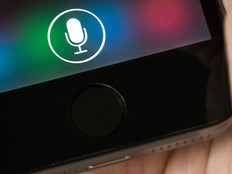Boeing Uses 20,000 Pounds of Potatoes to Improve In-Flight Wi-Fi
Frequent travelers are all too aware of the state of Wi-Fi on planes: It’s weak, intermittent and expensive. Boeing worked hard to fix those issues on their planes, and to make it happen, the company employed 10 tons of potatoes.
Yes, potatoes. As in the vegetable we all enjoy mashed, baked or deep-fried. It turns out that potatoes interact with wireless Internet signals in nearly the same way as humans do:
Engineers at Chicago-based Boeing Co. used sacks of potatoes as stand-ins for passengers as they worked to eliminate weak spots in in-flight wireless signals. They needed full planes to get accurate results during signal testing, but they couldn't ask people to sit motionless for days while data was gathered.
"That's where potatoes come into the picture," Boeing spokesman Adam Tischler said.
It turns out that potatoes – because of their water content and chemistry – absorb and reflect radio wave signals much the same way as the human body does, making them suitable substitutes for airline passengers.
Read Boeing Potato Wi-Fi: Engineers Using Spuds To Improve In-Air Internet Signal Strength on HuffPost Chicago.
Engineers needed time to tweak wireless signals in an environment that mimicked a loaded plane. The engineers also needed to be sure that the signal didn’t interfere with the plane’s navigational controls. The alternative to using potatoes? Hiring a few hundred people to sit in the plane for an extended period.
Most of us can relate to getting grouchy and antsy after sitting on the tarmac for a few hours, so asking people to do so for a few days was clearly out of the question.
Potatoes ended up being a cheaper and simpler solution. According to a press release from Boeing, “Testing that previously took over two weeks to conduct was reduced to 10 hours.” They nicknamed the project Synthetic Personnel Using Dialectic Substitution, also known as SPUDS.








